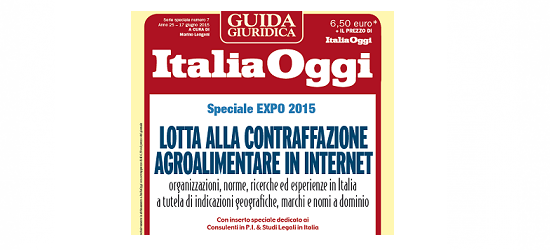
Riccardo Fecchio, Attorney at Law, Italian and European Trademark and Design Attorney
De Simone & Partners, Rome
In 1989 the European Parliament decided that the European reputed “spirit drinks” deserved recognition and protection against misappropriations, unfair commercial practices and against untraditional productions. Since then, the European Union has protected the commercial value of the most famous liqueurs and their commercialization to the consumers.
Regulation No. 1576/89’s, and perhaps even more clearly Regulation 110/08, affirm that “the spirit drinks sector is important for consumers, producers and the agricultural sector in the Community” and “so, the measures should safeguard the reputation which Community spirit drinks have achieved in the Community and on the world market by continuing to take into account the traditional practices used in the production“.
Sambuca – aniseed-flavoured liqueur of ancient traditions, created by Luigi Manzi in 1851 in Civitavecchia – has always been included in the products whose reputation has been established by the Regulation. The rules provided do not leave room for imagination in protecting Sambuca, and have detailed all its features, describing the main ingredient – green or star anise – the absence of colours, the precise content of sugar and natural anethole, as well as the minimum alcoholic strength.
As often happens, however, despite a comprehensive legislative system, the effective protection is left to the last article, laconically entitled “Control and protection of spirit drinks“, which reads: “Member States shall be responsible for the control of spirit drinks“.
As a result, the enforcement instruments do not match up with the clear legislative frame. The problem does not only concern Sambuca, although our experience with Sambuca has disclosed all the limits of the enforcement granted in Italy.
The problem has a dual nature: the first is the existence of multiple organisms abstractly competent to intervene. Our Country has indeed entrusted in primis – as expressly stated by the Decree of implementation of the Regulation – the “Central Inspectorate for the Quality Protection and the Fight of Fraud of Food Products” – Ministry of Agriculture and Forestry, but also, incidentally, the Fiscal Police, the Italian Competition Authority, and – also – Consumer associations legitimated to act as plaintiff in legal proceedings. On the other hand, there is no possibility to coordinate interventions at European level since there is only a mere obligation of “information” of national bodies in favour of European ones, although such obligations of information do not bring to any specific outcome.
With respect to infringement on the Internet, it gets even worse. Although there have been many improvements, Internet is still the place where to test the effectiveness of the enforcement. In the internet, rather than in the physical market, it is essential to provide supranational coordination.
To date, the Regulation remains ineffective from that point of view and it leaves to the producers – preferably grouped in associations – the obligation to inform the authorities, stimulating them when necessary, and to inform consumers of the risks resulting from the adoption of certain unfair business practices.
It is to be hoped that – given the strengthened possibilities of Italy to influence legislative decisions on the food sector, also thanks to EXPO – a greater attention will be paid to the protection of GI, also on the Internet. Indeed, the food sector will be of growing interest in the near future: something we should all be well prepared for.
